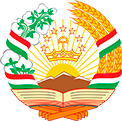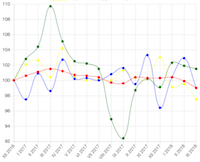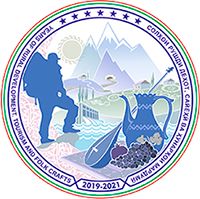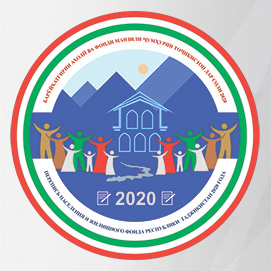With the technical and financial support of the UN Food and Agriculture Organization (FAO) in the Republic of Tajikistan, as part of the regional project “Strengthening the capacity of ministries and other relevant government bodies to implement and monitor the SDGs and solve problems arising in the process of nationalization of the 2030 Agenda", from October 28 to November 1, 2019, the visit of the international expert Mr. Zaza Chelidze was carried out.
This event was carried as part of the FAO regional project to strengthen the capacity of ministries and other relevant government bodies to implement and monitor the SDGs and solve problems arising in the process of nationalization of the 2030 Agenda.

On November 1, 2019, a seminar was held on the theme: “The role of food and agriculture in achieving the 2030 Agenda and the importance of data for policy formulation”, which was attended by the Agency’s leadership and the heads of departments of the Statistics Agency and the State Center “MCC”, representatives of the Food and Agriculture Organization UN in the Republic of Tajikistan, representatives of the Ministry of Agriculture, Ministry of Economic Development and Trade, Ministry of Energy and Water, State Committee for land management and geodesy, the Committee for Environmental Protection, the Agency for Forestry and the Academy of Agricultural Sciences of the Republic of Tajikistan.

Mr. Zaza Chelidze made a presentation at the seminar “International (national) practice of agricultural statistics (experience of the Republic of Georgia and other EECCA countries) and further efforts to raise awareness of the key role and contribution of sustainable food and agriculture to the 2030 Agenda of the year".
Particular attention in this event was emphasized the need for effective mechanisms for intersectional cooperation, interagency coordination and management to ensure sustainable food security. As global data shows, no sector can independently solve the problems of poverty, food insecurity and malnutrition. Currently, countries are in the process of implementing the SDGs. Sustainable food and agriculture are essential for addressing the root causes of poverty and hunger, and for sustainable management of natural resources.

FAO is preparing a roadmap for Tajikistan to compile all sustainable development indicators. Under the same project, FAO will assist Tajikistan in developing a monitoring system for national sectoral programs and strategies related to food and agriculture in accordance with the SDGs.
In September 2015, 193 countries, members of the United Nations, approved the Sustainable Development Goals (SDGs) and the 2030 Agenda for Sustainable Development. The agenda contains 17 global goals, 169 targets and 244 indicators.

The Sustainable Development Goals aim to eradicate poverty and hunger while restoring and sustainably managing natural resources, combining three aspects of sustainable development: economic, social and environmental.
























































